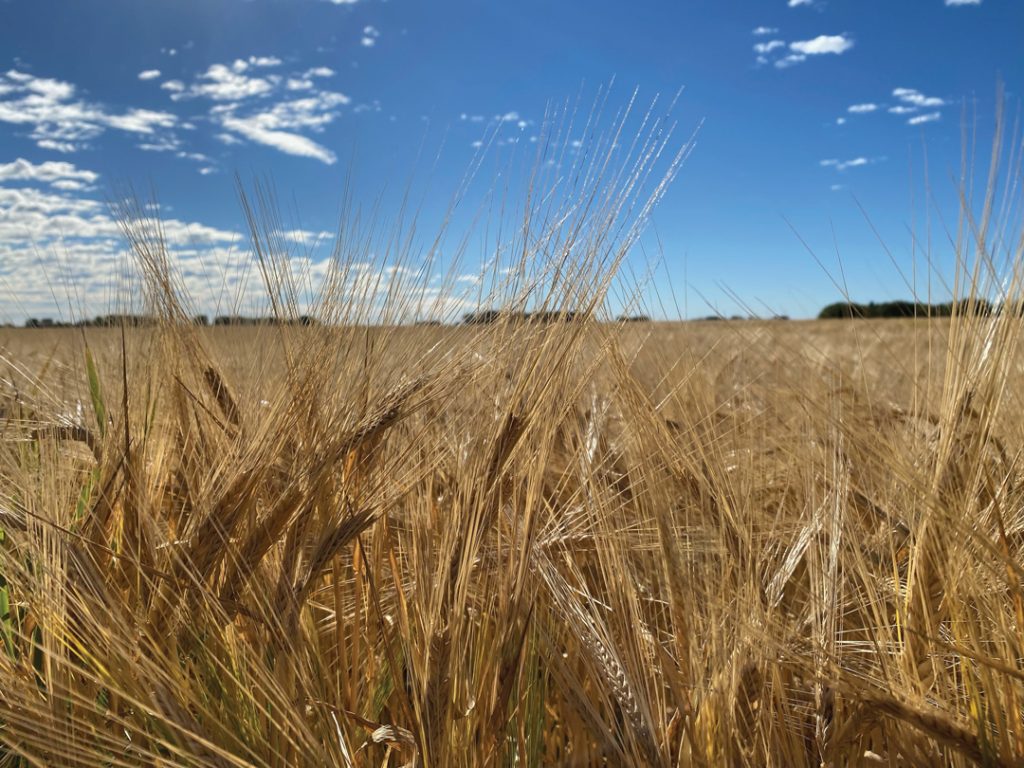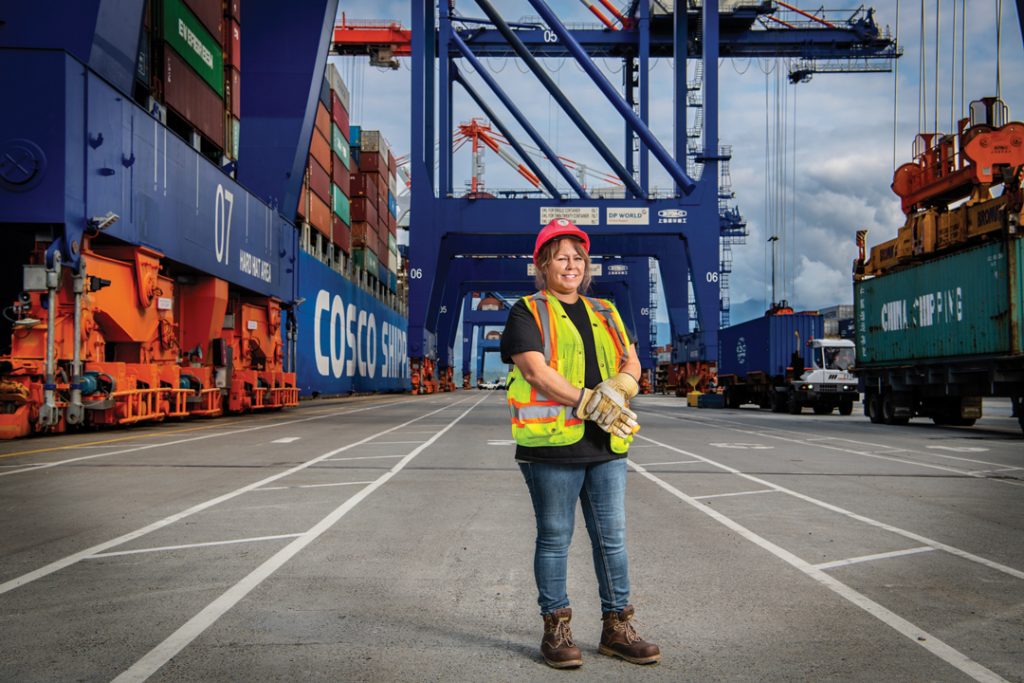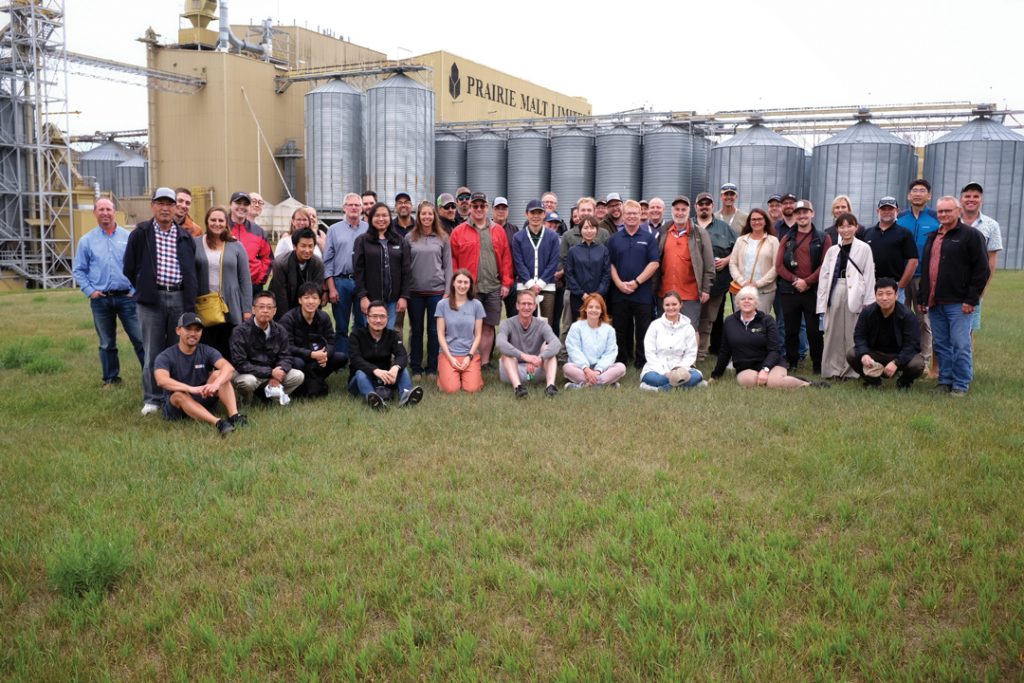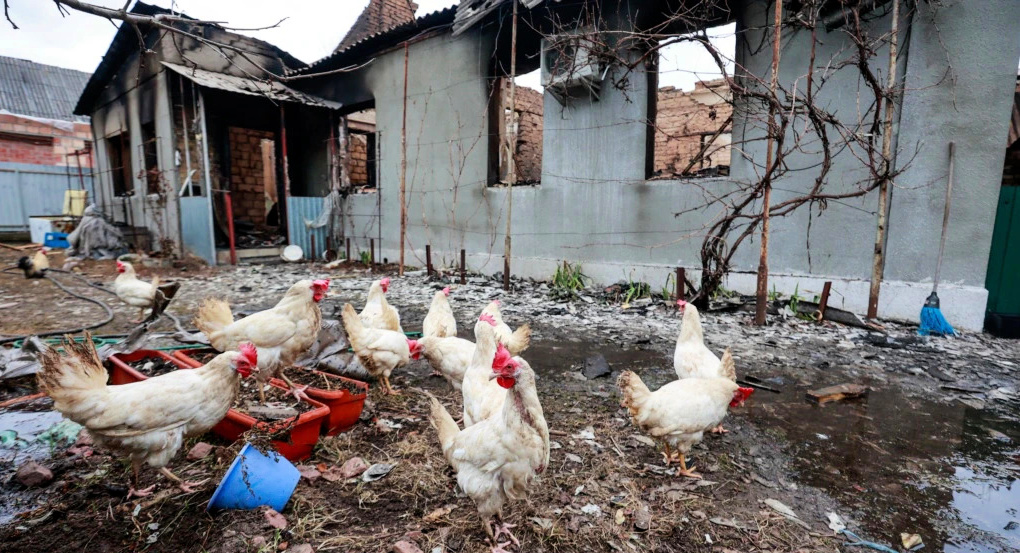From Aug. 10-12, the Canadian Malting Barley Technical Centre (CMBTC) and its members held the 2022 Western Canada Barley Crop Tour, the first time in three years the event has been held in person. Approximately 50 representatives from across the barley value chain gathered in central Saskatchewan. The group included maltsters and brewers, Canadian farmers and grain companies, as well as buyers of Canadian barley and malt from around the world. The tour included several beer industry representatives from Japan, one of Canada’s largest malt markets. Among them were technical and purchasing staff from Asahi and Sapporo Breweries.










